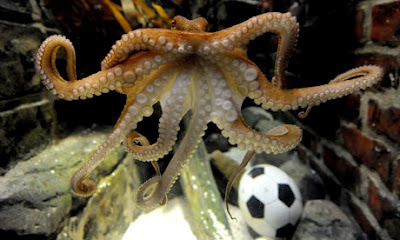This picture of Mark Zuckerberg’s wedding with Priscilla Chan was one of the few truly heart warming images from the last few weeks. This picture was so heart-warming because I learnt something new: I didn’t know Zuckerberg’s girlfriend was Asian. This knowledge re-framed the Zuckerberg wedding for me, as a fellow Asian. This isn’t just another wedding photo any more. It is now the picture of every Tiger Mom’s most fervent dream coming true. Dennis and Yvonne Chan, ex-refugee immigrants who ran a Chinese takeaway in Boston, must be so happy with their multi-billionaire son-in-law. How nice for them!
As my heart warmed to the Chan family’s good fortune, I started slipping into an authentic Tiger Mom mindset, and some more tough-minded thoughts took shape. A good Tiger Mom would do some rigorous competitive benchmarking. She would ask herself, “Mark Zuckerberg is a nice boy, but is he really rich enough for Priscilla? Is he as rich as Mrs. Bennet's son-in-law, Mr. Darcy? You know, the one they want to marry Elizabeth off to?”
It turns out Mrs Chan need not have worried, her son-in-law compares very well with Mrs Bennet’s son-in-law. Jane Austen tells us that Mr Darcy had an income of ten thousand pounds per year, in 1810, in England. Converted into today’s money, that is about $600,000 per year. That is a tidy income, but feels distinctly imaginable, more affluent-professional than masters-of-the-universe, certainly not the kind of money that animates the Occupy Wall Street movement. A self respecting Tiger Mom would wish more for her children.
So, is that game, set and match to Mrs Chan? Was Mr Darcy really no better off than assorted corporate vice presidents? Mr Darcy owned half of Derbyshire and employed a vast domestic staff, but he couldn’t buy an asprin, or watch the World Cup finals on HDTV. Can one really compare his situation to ours? To whatever extent comparisons are possible, it seems like our living standards have improved so much that millions of upper middle class professionals enjoy a quality of life that is equivalent to that of the most privileged landed aristocrats just two hundred years ago, which is a comforting thought in these troubled times.
Mrs. Bennet’s partisans might argue that relative income matters more than absolute income. This is reasonable. Behavioural economics and evolutionary biology suggest that people care more about status than about absolute living standards. Mr Darcy was high status, certainly higher status than the armies of contemporary upper middle class professionals who share his living standards. But how does his relative income or status compare with Mark Zuckerberg?
The American academic James Heldman tells us that Mr Darcy’s income of 10,000 pounds per year was 300 times the per capita income in his day. The per capita income in today’s America is $48,000, so a contemporary Mr Darcy would make approximately $15 million per annum, which is starting to feel appropriately rarified. Mark Zuckerberg’s fortune is at least $10 billion. If that earns risk free returns of 2% p.a., that is an income of $200 million, which is an order of magnitude more than what our contemporary Mr Darcy makes.
James Heldman also refers to the economic historian G.E. Mingay, who estimates that there were only 400 families among the landed gentry of England with an income in the range of 5,000 to 50,000 pounds per annum, with the average being about 10,000. To keep things simple, lets say that puts Mr Darcy in at about the 200th richest man in his England. Mark Zuckerberg is the 14th richest person in his America, trumping Mr Darcy once again, without any fiddly adjustments for the larger population in today’s America. However one looks at the numbers, our contemporary Tiger Mom Mrs. Chan has outperformed the proto-Tiger Mom Mrs. Bennet.
At this point, the top performing Tiger Mom in the jungle would need to pause, offer the other Tiger Moms a cup of tea, and initiate a conversation about how money doesn’t really matter, that there are many qualitative things like character and compatiability that make a marriage successful. This blog would like to join the Tiger Moms in drinking a cup of tea. This blog would also like to wish all happiness to the newlyweds Mark and Priscilla. May they play many Limca Cuts.





















